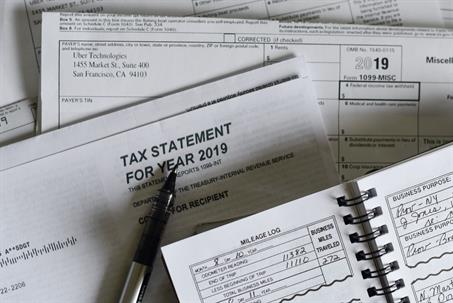South Dakota Offers $75K Reminder on a Key Use Tax Issue for Multi-State Real Property Contractors
A use tax case from the South Dakota Office of Hearing Examiners highlights an important issue for real property contractors that perform work in multiple states and localities. Specifically, when and to whom do you pay tax on the tangible property used to complete a real property improvement? We have those answers below, along with other insights for construction contractors when it comes to their sales and use tax audit defense.
Ellingson Drainage, Inc. v. South Dakota Department of Revenue
In Ellingson Drainage, Inc. v. South Dakota Department of Revenue, the South Dakota Office of Hearing Examiners upheld an assessment for $75,528.32 against the taxpayer for its use of machinery and equipment on projects in the state. The taxpayer was a Minnesota-based company that specialized in the installation of drain tile on farming and governmental property. As a part of its business in South Dakota, the taxpayer used several pieces of machinery (e.g., tractors, excavators, and plows) it had previously purchased outside the state. The taxpayer had not previously paid sales tax to other state agencies as of South Dakota’s assessment.
South Dakota imposes an excise tax on the privilege of using, storing, and consuming property in the state. See SDCL 10-46-2. This excise use tax applies to the property regardless of where you purchase it and if it is owned or leased. The taxpayer argued the imposed excise tax was unconstitutional because the property being taxed was not primarily used in South Dakota but in other states. The Office of Hearing Examiners rejected this argument because the taxpayer used the property in South Dakota and declined to consider the issue of constitutionality because it was outside its jurisdiction and presumed constitutional.
When Do Real Property Contractors Need to Pay Use Tax on their Equipment in South Dakota?
In addition to South Dakota’s contractor excise tax, businesses also have an obligation to pay the use tax on equipment brought into the state on a job. The state’s 4.5% rate plus municipal rates apply to the purchase price of the property used in South Dakota, the tax is due the 20th of the month following the month you used the property (e.g., February 20th due date for use in January).
However, contractors can mitigate some of their use tax obligations in South Dakota in a few ways:
- Apply for credits on the amount of sales tax paid (if any) at the time of purchase.
- Adjust the tax base (i.e., the purchase price) by the depreciated value of the equipment
- Exempt the use tax on equipment that is over 7 years old.
The Takeaway for Multi-State Contractors on Their Sales and Use Tax Audit Defense
Generally, real property contractors, subcontractors, and others in the construction business are considered the consumers of the property they use and transfer to customers when improving realty. This means your sales tax is often paid at the time of purchase unless an exemption applies (e.g., work for a charitable organization in select states). This payment of tax becomes complex, however, when you buy an item in one state for use with your contracting services in another.
You could have multiple use tax liabilities associated with one piece of equipment when performing projects in several states, and that can be a lot to manage without professional sales tax help. The reality for contractors in cities that border or work in two or more states (e.g., New York City, Kansas City, Chicago, etc.) means that the use tax audit assessments are more of a when, not if, scenario. As a result, you need to prioritize the following:
- Keeping receipts or invoices of expensive capital purchases (e.g., heavy equipment and machinery) that reflects the sale price and the sales tax paid.
- The depreciated value of your equipment over time.
- The location of contractor work could lead to local and municipal use tax rates on top of the state rate.
- Make sure your contract price accounts for sale and use tax obligations.
- Comparing contract methods with the state’s sales tax laws to maximize profit and mitigate tax liability.
Sales Tax Helper: Audit Defense for Your Real Property Contracting Business
Knowing your sale and use tax obligations is essential for maximizing your construction business’s profit and avoiding surprise assessments long after you finish a project. Paying no more use tax than you owe a state’s department of revenue is a direct method of protecting your business’s profit margin. When a sale and use tax audit or assessment occurs against your company, consider a free consultation with one of our sales tax professionals. We review the audit report, your financials, and the applicable sales tax rules to challenge overassessments and collect available sales tax refunds or credits.
Schedule a free consultation for your contractor today.

